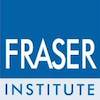Uninsured Mortgage Regulation: From Corporate Governance to Prescription
Added prescription to Canadian mortgage rules unnecessary, could increase costs for homebuyers
 TORONTO
TORONTO—Requiring a stress test for Canadians who provide at least a 20 per cent down payment to purchase a home is an unnecessary step that could negatively affect homebuyers across Canada, finds a new study by the Fraser Institute, an independent, non-partisan Canadian public policy think-tank.
Canada’s financial regulator, the Office of the Superintendent of Financial Institutions (OFSI), wants to force homebuyers who do not require mortgage insurance—those who provide 20 per cent or more of the property’s value as a down payment—to qualify for a mortgage two percentage points higher than the agreed upon rate.
“This proposed stress test for financially sound homebuyers is unnecessary and will do more harm than good—Canadian homebuyers will pay the price,” said Neil Mohindra, a public policy consultant and author of
Uninsured Mortgage Regulation: From Corporate Governance to Prescription.
The study finds the case for implementing the stress test is weak and not necessary given the existing supervisory framework. It is expected to produce several negative effects including:
- Potential homebuyers could find their access to mortgages more limited, especially in higher-priced markets.
- The stress test could force homebuyers away from their preferred homes to less-desirable homes.
- Homebuyers may seek out less-regulated mortgage finance companies, which are funded by private investors and charge higher interest rates.
- Homebuyers may be incentivized to choose shorter-term variable loans, which are more vulnerable to rate fluctuations than longer-term fixed-rate mortgages.
- Canada’s mortgage industry could become less competitive. Some financial institutions that are niche players in the residential mortgage market (i.e. they focus on segments such as self-employed individuals) may find their ability to pursue their business strategies impaired. This runs counter to the federal government’s objective of promoting more competition from smaller banks.
Crucially, the rate of residential mortgage arrears in Canada—that is, when the borrower is more than 90 days behind with their payment—is virtually unchanged from 2002 and hasn’t exceeded 0.45 per cent, even during the 2009 financial crisis, when the U.S. rate of arrears neared five per cent.
“OSFI’s emphasis on corporate governance worked well during the financial crisis. Shifting towards more prescriptive rules is an ominous sign,” Mohindra said.
MEDIA CONTACT: Bryn Weese, Media Relations Specialist, Fraser Institute,
bryn.weese@fraserinstitute.org
Fraser Institute -- Bio and
Archives |
Comments
The Fraser Institute is an independent Canadian public policy research and educational organization with offices in Vancouver, Calgary, Toronto, and Montreal and ties to a global network of 86 think-tanks. Its mission is to measure, study, and communicate the impact of competitive markets and government intervention on the welfare of individuals. To protect the Institute’s independence, it does not accept grants from governments or contracts for research. Visit fraserinstitute.org.
Follow the Fraser Institute on Twitter | Like us on Facebook

